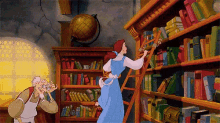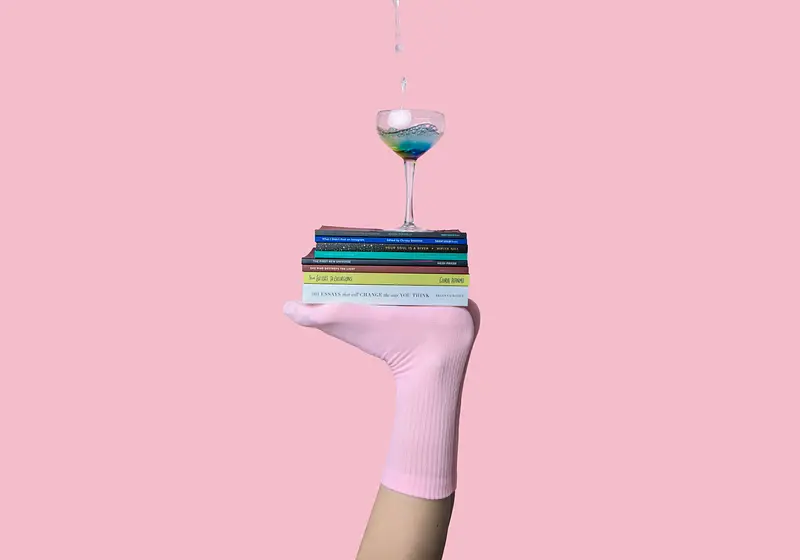A shy, “I would rather read a book”, glasses-wearing girl is thrust into a fake relationship with the school’s football team captain jock and you know exactly what this is and how it’s going to end. It’s the typical set-up and plot to yet another predictable romance novel.
Romance novels as a whole garner a lot of unwarranted hate and criticism - in part due to overused tropes, and in part due to the fact that, well, some romance novels are just bad. In fact, some romance novels need and deserve hate. From Colleen Hoover's romanticizing of abuse to poorly written erotica to clichés that encompass a good 50% of the books in this category, there is much to be disliked about the romance genre.
However, this dislike has perhaps come at the cost of overshadowing some actually good romance novels. Here's why romance novels need more appreciation and credit than they receive.
Often labeled as “trashy” and following a set formula, romance novels have been seen as mainly appealing to women - a pretty misogynistic dismissal. It enforces the idea that there is an interconnected relationship between love and femininity and that gentle and nurturing vulnerability is only for women. This only further degrades the genre’s female audience and denies male feelings. The patriarchal stance that romance novels have taken only undermines stories that center around a woman’s emotions and desires.
The romance genre is often treated as an inferior sub-category of fiction - demonstrated by the poor quality, black and white, frightening Calvin Klein advertisement-esque covers - and is placed below genres such as science fiction and fantasy novels. However, these genres also follow tropes. A young boy realizes he has supernatural powers and doesn’t belong in the mortal realm and sets off to thwart a lurking evil – that sounds familiar, doesn’t it? And yet, it seems these genres are hardly criticized among the masses.

Image Credit: Ester Marie Doysabas from Unsplash
Still, romance is one of the best-selling genres in the world. But why is that, when it’s been degraded and frequently hated?
Romantic love is something that has been taught to us from a young age, whether through our parents, or most popularly, through the media. From our favorite cartoons to the books we read as children, love permeates it all. The desire to be loved becomes prevalent through this constant exposure. However, the same cannot be said about the modern dating world.
More and more, we as a society have complicated romance, introducing situationships and six-week rules that somehow always manage to end in heartbreak. Social media either constantly feeds us happy ideal couples that gnaw at our loneliness, or it vilifies the opposite [censored], creating misogynistic and misandrist perceptions of the other gender, breaking the trust that is needed to form a healthy romantic relationship.
This is not the only aspect social media is involved with when it comes to love. Since the beginning of the pandemic back in 2020, “BookTok” has become so widespread and popular that every single Barnes & Noble has a shelf display dedicated to it.
BookTok is a community of avid readers on TikTok who recommend and review books. Books commonly seen in these videos include Colleen Hoover’s entire published collection, poorly written erotica with children’s art as the covers, predictable plots and insufferable characters. In short, BookTok favors romance novels, and the romantic novels that BookTok has to offer are, frankly, quite bad. Thus, the hate for romance novels has only been fueled in the past few years.

Image Credit: Olivier Bergeron from Unsplash
But under all the dreadful daddy issues and one-dimensional characters, a good portion of romance novels actually offer the reader a chance to escape, to live vicariously through a romance. To experience the giggles and blushing of a first kiss, to relish the gratifying payoff of a slow burn, to feel the burning ecstasy of two characters exchanging passionate confessions, to experience love in a society almost devoid of romance.
A romantic book isn’t all romance, though. Often, the book offers more than just character interactions, but social commentary as well. A romance novel can tackle complex subjects of class, race, and gender in contemporary society. In fact, in recent years novels have taken to include more same-[censored] and interracial romance, increasing visibility and representation of the LGBTQ+ community and minorities and showing overall progression as a society.

Image Credit: Getty Images for Unsplash
In all honesty, good romance novels are truly something that should - and have been - praised. The amount of skill that goes into writing romantic gestures without them appearing awkward or cringey is unparalleled, and frankly, unappreciated. How many different ways can one manage to word, “he gazed deeply into her warm brown eyes,” and make it sound heartfelt and not cringe-inducing?
In the past when appreciation has been given, these books have turned into literary masterpieces of the century. Works by Jane Austen and the Brontë sisters are essentially romance novels at their core, providing social commentary along with the suspense of whether Mr. Darcy actually likes Elizabeth. Romeo and Juliet, considered one of the greatest love stories of all time, isn’t subjected to the demeaning genre of romance, leading me to believe that perhaps the categorization of literature is subjective at the very least.
In a time where true love is hard to come by, many turn to romance novels to fill the gaping void of loneliness in the modern century. Romance novels offer comfort and a quiet hope and fuel for a hopeless romantic. They offer a vicarious life and a feel-good warmth at the pit of your stomach.
In recent years, they’ve highlighted diversity and representation. They allow exploration of more ideas and desires deemed “feminine” and grant a countenance to patriarchal standards. All in all, they deserve to be appreciated by a wider audience, and not blindly hated for a misrepresentation and misconception of the genre.


















